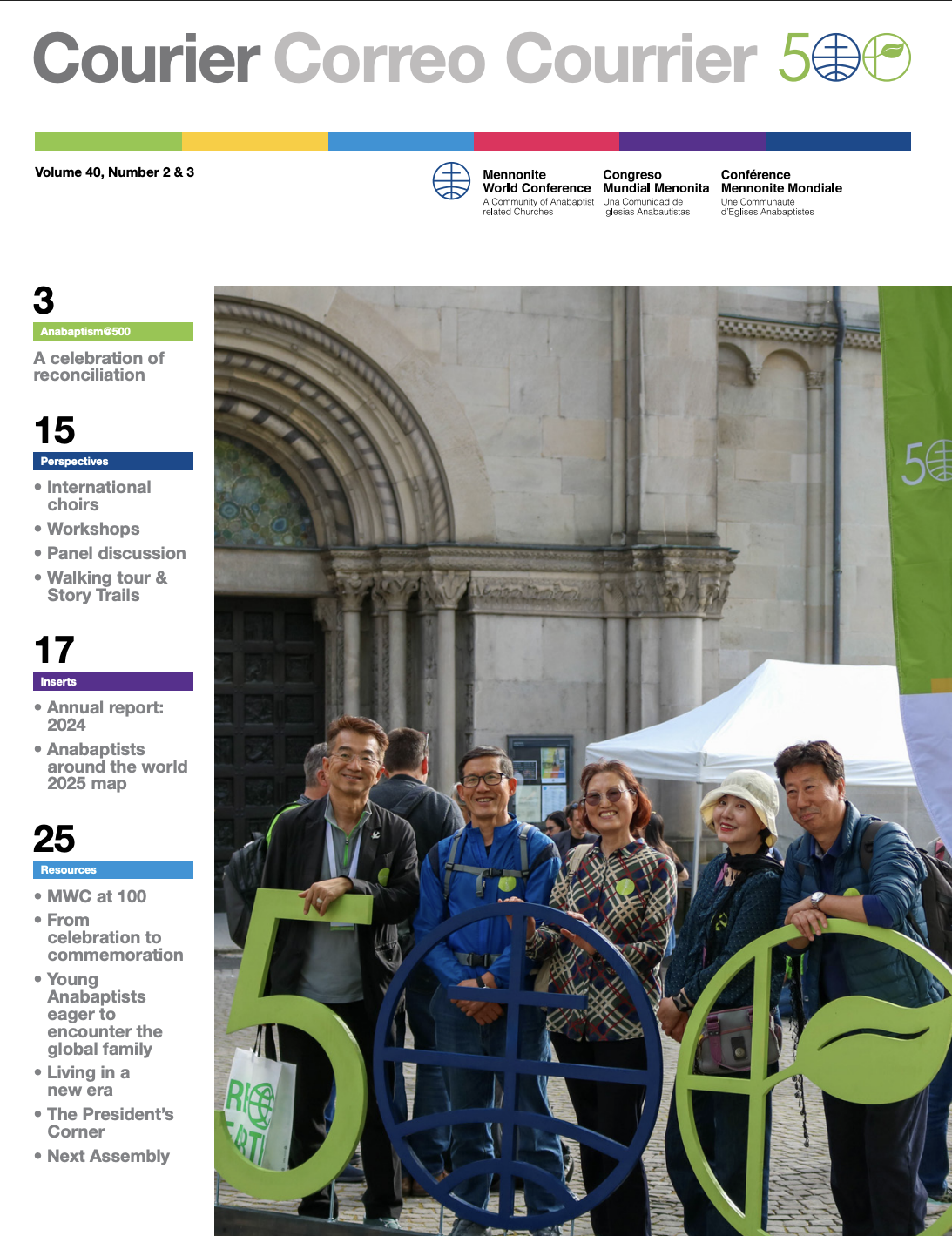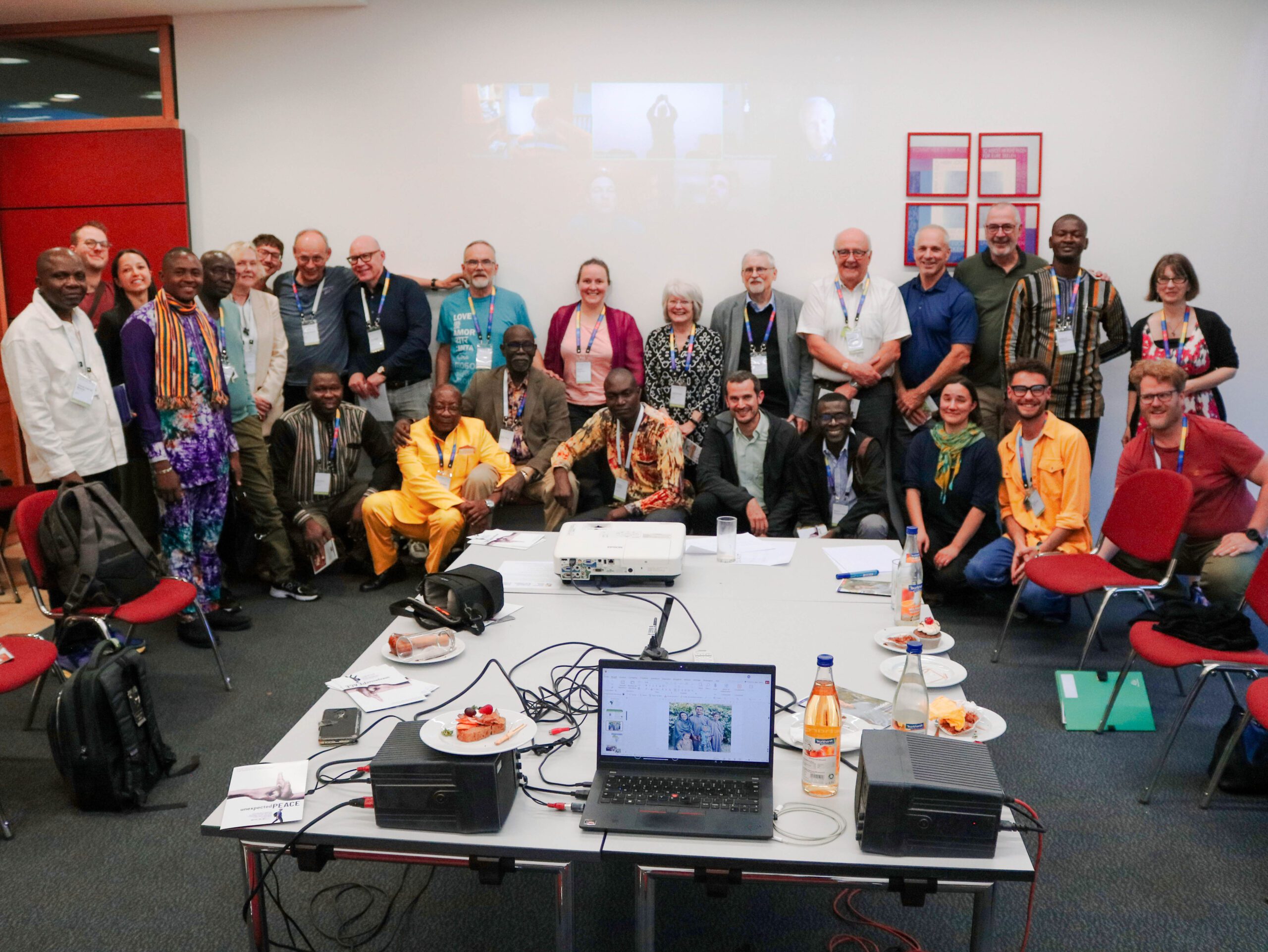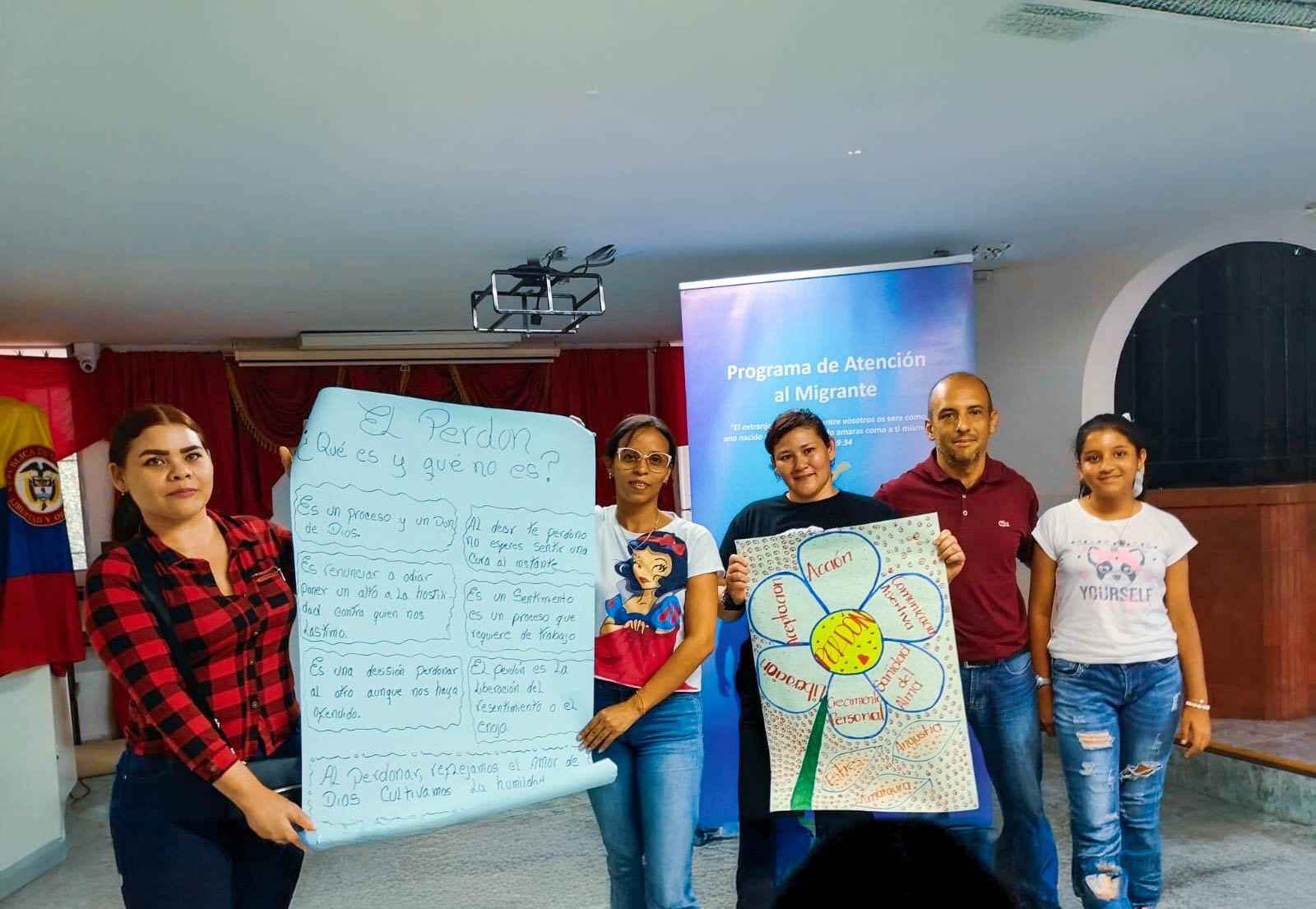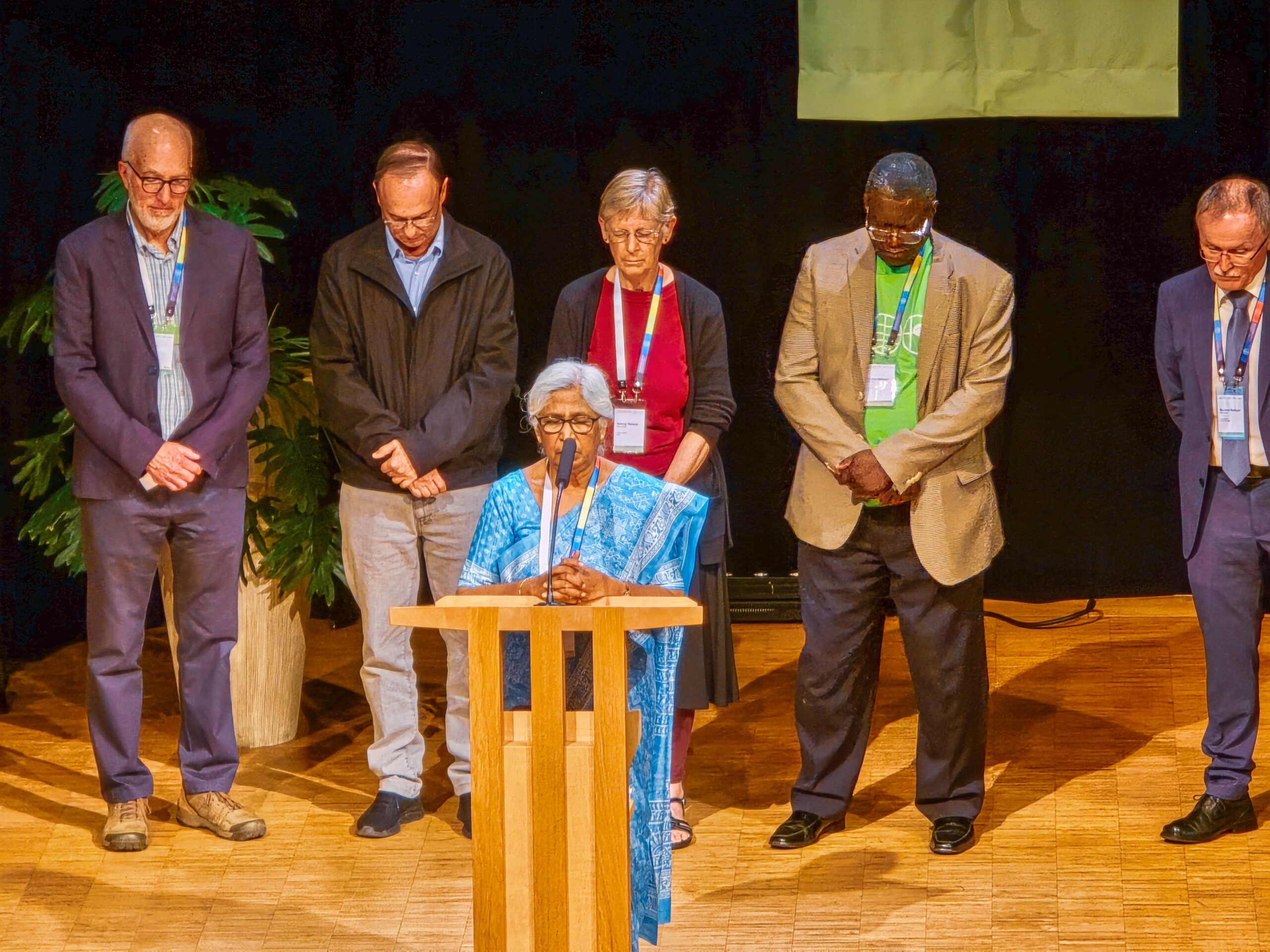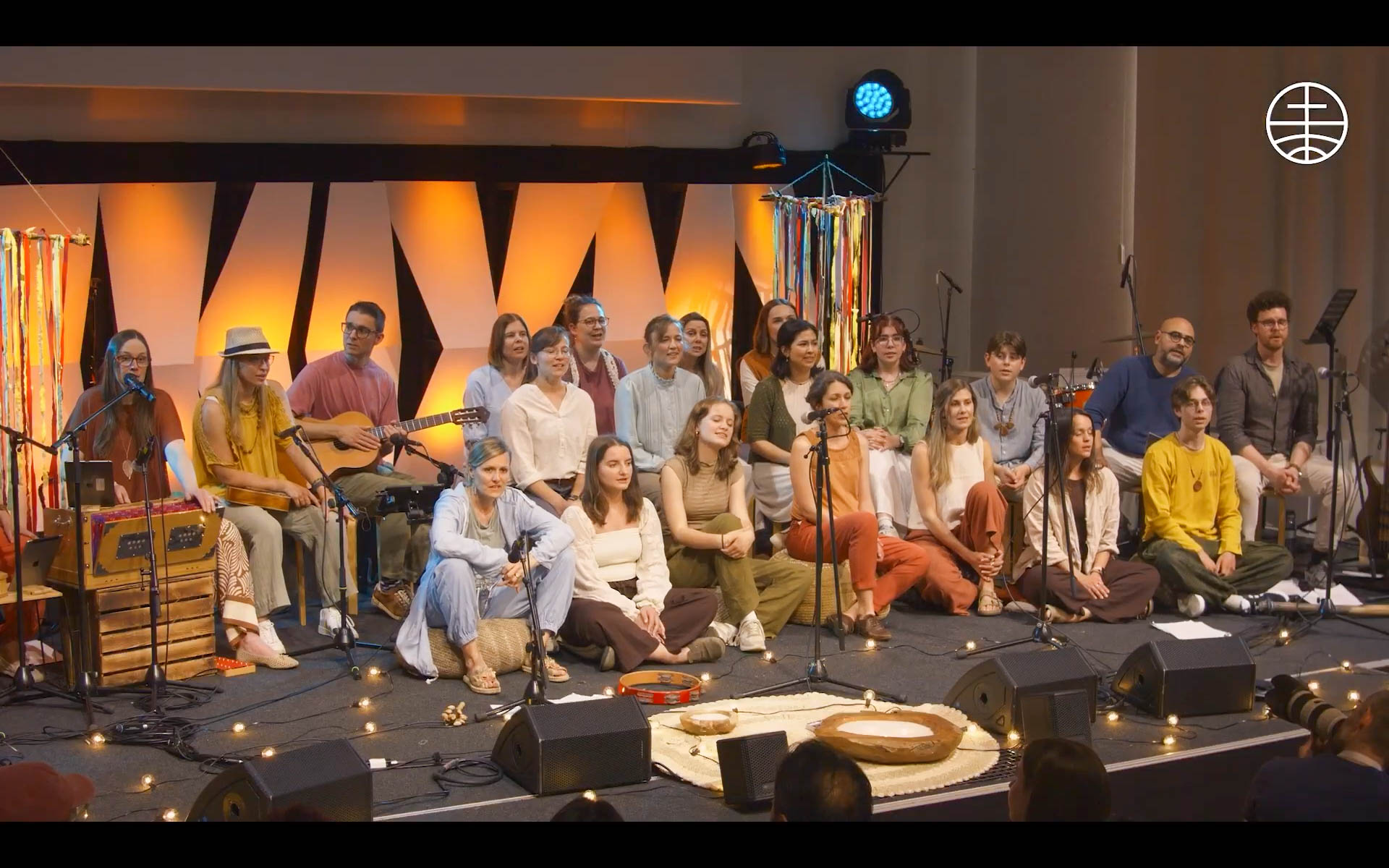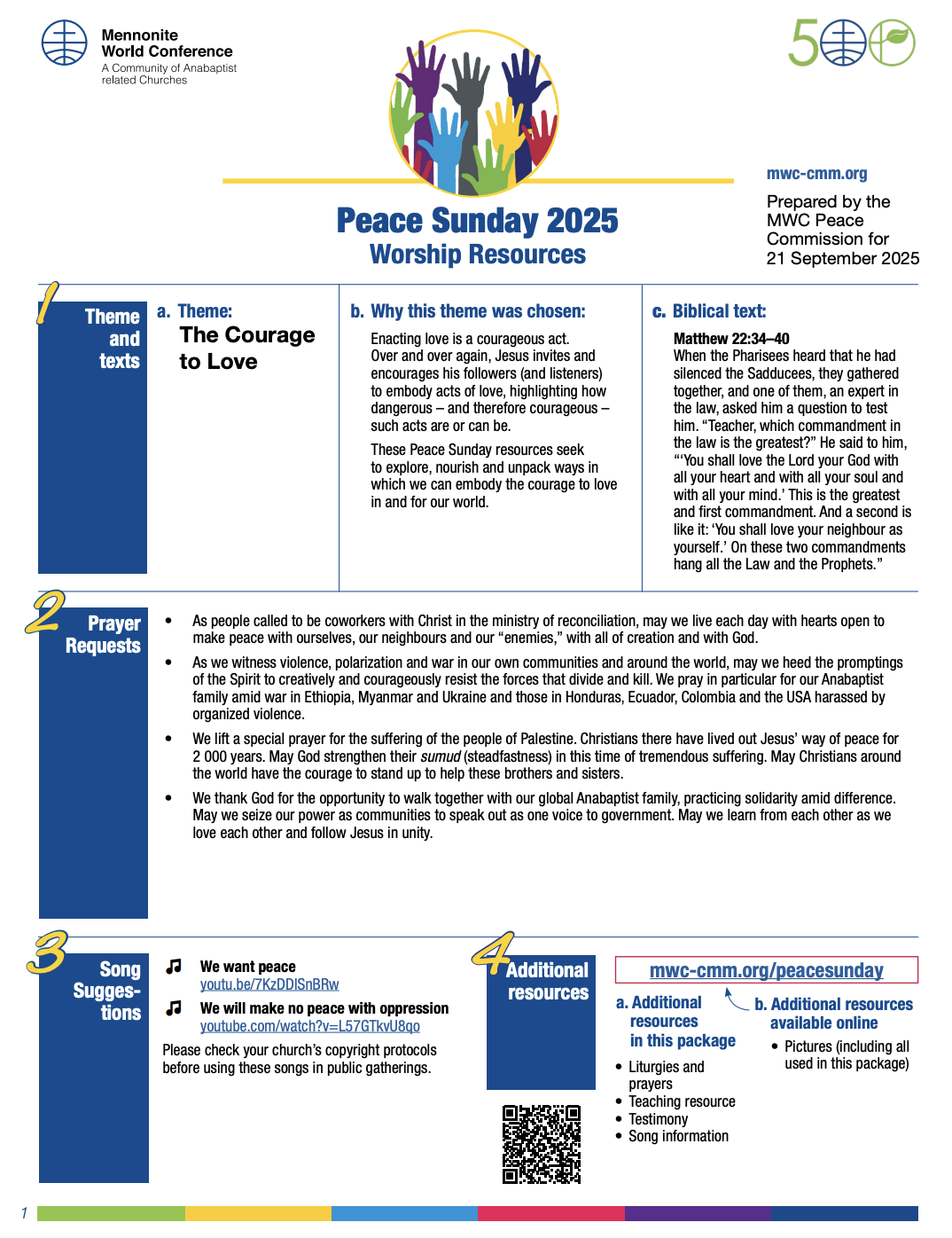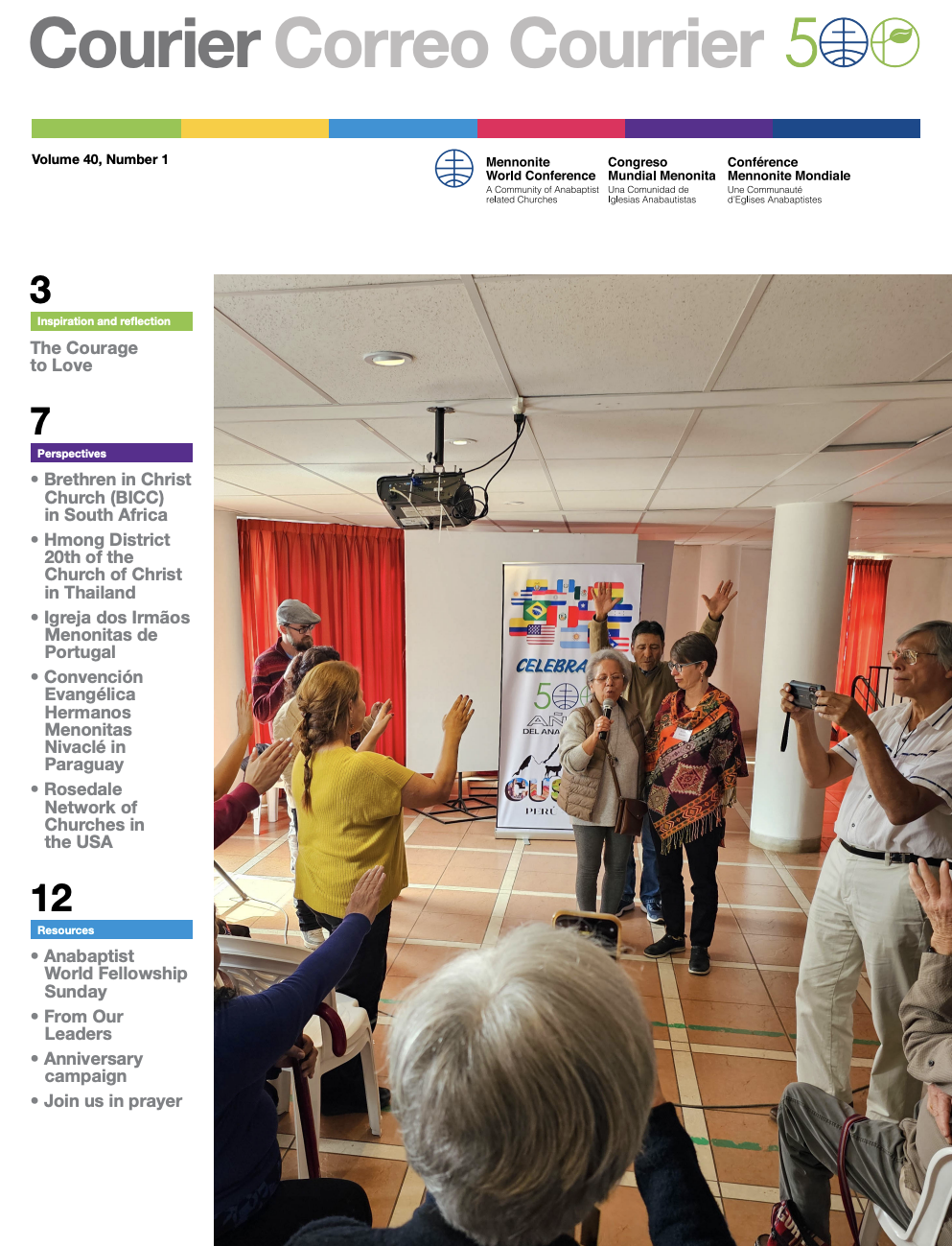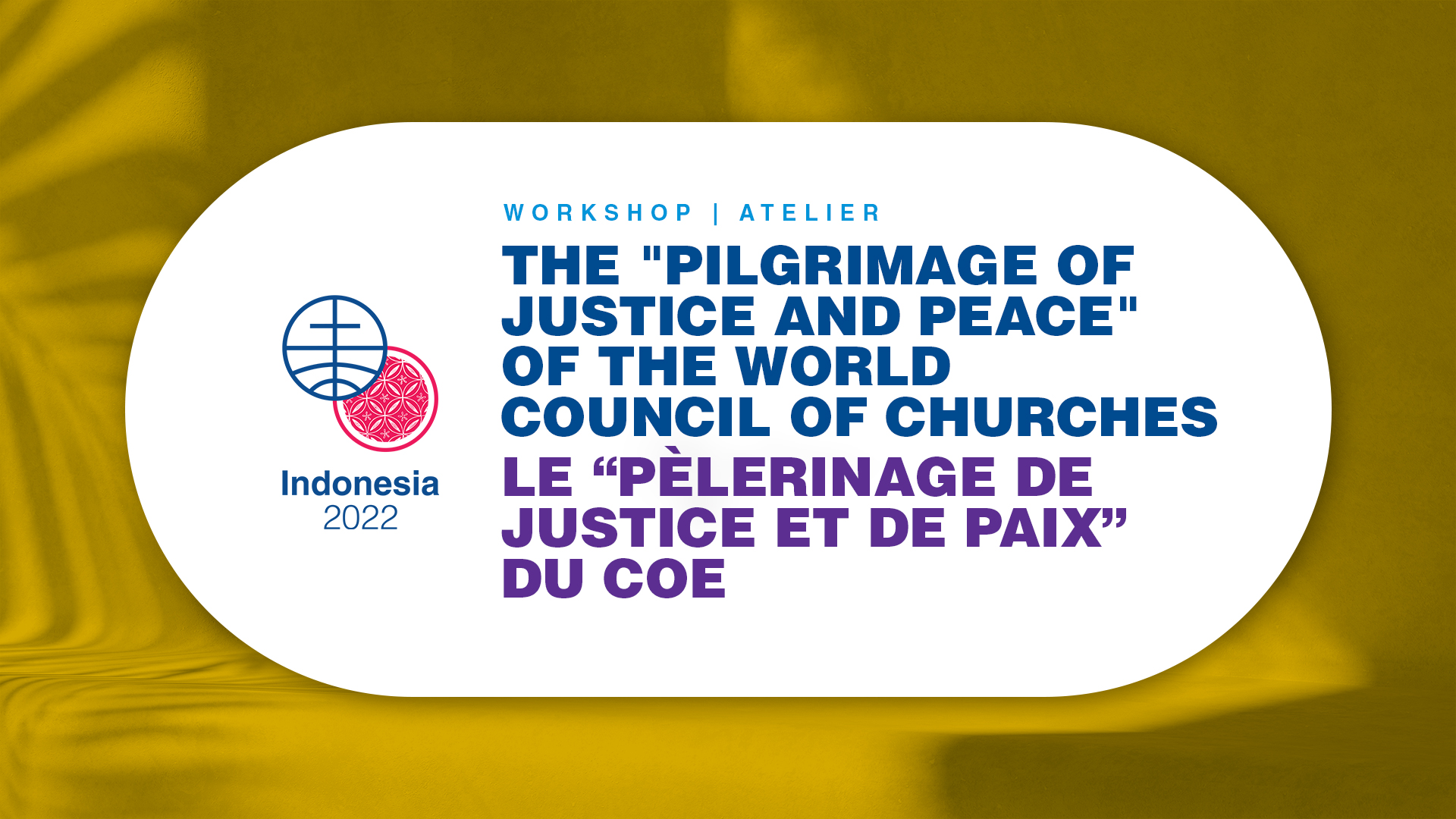-
Courier 2025 / 40.2-3
This issue of Courier is a taste of the 500th anniversary Inspired by Zwingli’s famous invocation to “do something courageous!”, MWC gave the theme “The Courage to Love” to our 500th anniversary year. We marked it with a registration-free event in the streets of Zurich, Switzerland, on Ascension Day, 29 May 2025. It’s also the…
-
Peace Sunday 2025 – Activities
Who is our neighbour? What is the gospel? Enact “Samarital Acts” (Luke 10:25-37) in the community OR Explore the meaning of “gospel” in the story and notice the different practical ways in which it is embodied in Luke 4. 1. Create multi-generational groups to explore the assignment together over four weeks. 2. Within the groups,…
-
Peace Sunday 2025 – Prayers and Liturgies
Prayers and Liturgies A litany for the moment Responsive reading: one voice for the regular text, all voices for the bold text. All voices join on bold and italic text. God of surprising birth You are not the saviour we expect, Your power does not look like the power We want our God to demonstrate. We wait. We…
-
Peace Sunday 2025 – Song Information
We want peace “We Want Peace” isn’t just a song title. It’s a call. A prayer. And a mission. We wrote this song because we don’t believe that violence can be the solution to our problems. “War is Contrary to the Will of God”, wrote the World Council of Churches in 1948 after the end…
-
Peace Sunday 2025 – worship resource
Theme The Courage to Love Why this theme was chosen Enacting love is a courageous act.Over and over again, Jesus invites and encourages his followers (and listeners) to embody acts of love, highlighting how dangerous – and therefore courageous – such acts are or can be.These Peace Sunday resources seek to explore, nourish and unpack…
-
We want peace song information
Music & Lyrics: Dennis Thielmann © 2021 / French translation: Marie-Noëlle YoderArr: Dennis Thielmann & Karin Franz © 2025www.songsofpeace.ch Permission granted to MWC member churches for congregational use for Peace Sunday and Anabaptist World Fellowship Sunday. For permissions for ongoing use or in larger group gatherings, see www.songsofpeace.ch/songs/wewantpeace or contact info@songsofpeace.ch
-
The Courage to Love: Anabaptism@500 event video
On 29 May 2025, Mennonite World Conference (MWC) welcomed guests from around the world to The Courage to Love: Anabaptism@500. The day-long celebration commemorated the birth of the Anabaptist movement in Zurich, Switzerland. Following workshops, concerts, a panel discussion and self-guided historical walking tours, participants gathered for a worship service with ecumenical participation at the…
-
Courier 2025 / 40.1
A challenge for the ages It’s a double – even triple – anniversary for Mennonite World Conference this year. For one hundred years, Anabaptist-related national churches have been meeting together to acknowledge we are one body of Christ together, and to encourage and help each other in fellowship, worship, service and witness. For five hundred…
-
All webinars
Upcoming Webinars Challenges and possibilities for nonviolence today International Peace Day Global Anabaptist Peace Network Speakers: Oscar Siwali, Martha Alfonso, Francisco Mosquera 22 September 2025 14:00 UTC *corrected Languages: English, Español Previous Webinars
-
The Pilgrimage of Justice and Peace of the World Council of Churches
The World Council of Churches called for a “pilgrimage” of justice and peace. Applying a transformative spirituality, local communities have been visited in every region, to celebrate the gifts of life, to touch the wounds, and to transform the injustices. Key-themes have emerged on the way: Truth and Trauma, Land and Displacement, Gender Justice, and…
